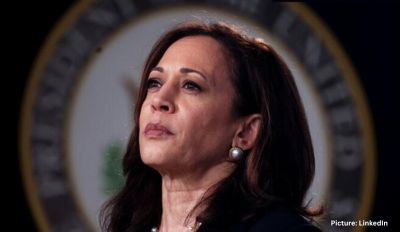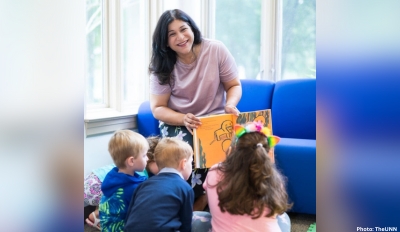In less than two months, as the mid-term elections come to a close, the official launch of the 2020 Democratic presidential primary season will begin. Over a dozen prospective candidates will start making moves or even launching campaigns to challenge President Donald Trump.
According to a CNN report published on September 13th, Kamala Harris, the Senator from California ranks 2nd among the 10 potential aspirants to the White House among the Democrats. She comes after Sen. Elizabeth warren of MA among the 10 ranked by CNN. In June this year, The Washington Post ranked the Indian Origin Senator from the Golden State 3rd after Sen. Warren and Sen. Bernie sanders of Vermont.
The popular FiveThirtyEight.com wrote recently, “Sen. Kamala Harris has not officially said she is running in 2020, but she hasn’t denied it, either, and she’s showing many of the signs of someone who is preparing for a run, including campaigning for her Democratic colleagues in key races and signing a deal to write a book.”
Harris recently told MSNBC’s Kasie Hunt that she’s “not ruling out” a 2020 presidential run. But her actions may speak louder than her words. She was the first lawmaker to call for Homeland Security Secretary Kirstjen Nielsen to resign over the Trump administration’s family-separation policy. She has also somewhat recently written off accepting money from corporate PACs.
According to CNN, “ Harris clearly saw the Kavanaugh confirmation hearings as a chance to showcase her prosecutorial mettle. And like Booker, what you took from Harris’ performance during the hearings is likely determined by what you thought of her before the hearings. But if you are looking at what the 2018 primaries have taught us, it’s that a candidate with a profile like Harris’ — liberal record, the first Indian-American in the Senate and first black senator from California — could be just what Democratic primary voters are looking for.”
In 2017, Kamala D. Harris was sworn in as a United States Senator for California, the second African-American woman and first South Asian-American senator in history. She serves on the Homeland Security and Governmental Affairs Committee, the Select Committee on Intelligence, the Committee on the Judiciary, and the Committee on the Budget.
Kamala has spent her life fighting injustice. It’s a passion that was first inspired by her mother, Shyamala, an Indian-American immigrant, activist, and breast cancer researcher.
Growing up in Oakland, Kamala had a stroller-eye view of the Civil Rights movement. Through the example of courageous leaders like Thurgood Marshall, Constance Baker Motley, and Charles Hamilton Houston, Kamala learned the kind of character it requires to stand up to the powerful, and resolved to spend her life advocating for those who could not defend themselves.
After earning an undergraduate degree from Howard University and a law degree from the University of California, Hastings, she began her career in the Alameda County District Attorney’s Office.
In 2003, Kamala became the District Attorney of the City and County of San Francisco. Among her achievements as District Attorney, Harris started a program that gives first-time drug offenders the chance to earn a high school diploma and find employment.
Having completed two terms as the District Attorney of San Francisco, Kamala was elected as the first African-American and first woman to serve as California’s Attorney General. In this role, she worked tirelessly to hold corporations accountable and protect the state’s most vulnerable people.
Over the course of her nearly two terms in office, Kamala won a $25-billion settlement for California homeowners hit by the foreclosure crisis, defended California’s landmark climate change law, protected the Affordable Care Act, helped win marriage equality for all Californians, and prosecuted transnational gangs that trafficked in guns, drugs, and human beings.
In the United States Senate, Kamala’s mission remains unchanged: fighting for the rights of all communities in California. Since taking office, she has introduced and cosponsored legislation to raise wages for working people, reform our broken criminal justice system, make healthcare a right for all Americans, address the epidemic of substance abuse, support veterans and military families, and expand access to childcare for working parents.


